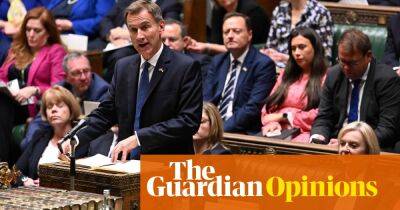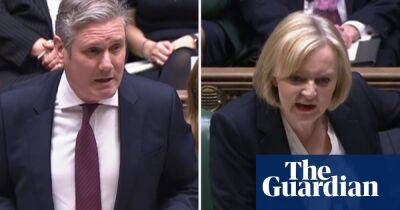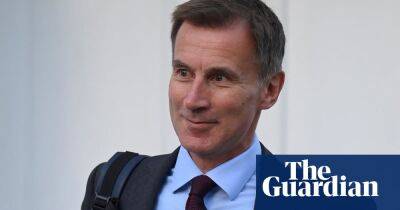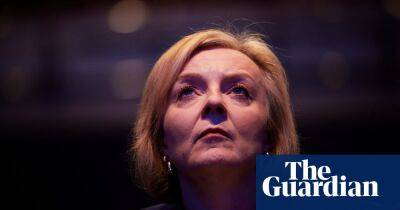If Jeremy Hunt is to be Truss’s saviour, he needs more than austerity 2.0
Jeremy Hunt is unlikely to give his name to a new economic model or ground-breaking method of boosting growth. Trussonomics is dead and all the new chancellor can do in the midst of the current crisis, and given the constraints he has immediately placed upon himself, is replace it with an orthodox mix of public spending cuts and tax rises to win favour with the financial markets.
In his first interview as chancellor, Hunt was sombre about the task facing him.
As master of ceremonies, overseeing the funeral of his leader’s economic plan, he signalled that a rise in corporation tax from 19% to 25%, planned by Rishi Sunak last year and scrapped by Kwasi Kwarteng in his mini-budget, will go ahead as the first of many policy U-turns to be announced in a full-scale budget a fortnight tomorrow.
Hunt said he wanted to protect the 1p cut in income tax, but left no one in any doubt that it was likely to be delayed or scrapped altogether.
Kwarteng’s long list of smaller tax cuts – bundled together in a package of so-called supply-side reforms, when they are mostly giveaways to the City and wealthy business people – are also expected to be thrown overboard.
The £2bn cost of easing restrictions on the taxes of consultants and owner-managed businesses, known as the IR35 rule and which critics dubbed a “fraudsters’ charter”, will be buried along with VAT-free shopping.
Such U-turns will save a few more billions of pounds over the five years he will be expected to balance the books and bring down the ratio of debt to gross domestic product (GDP).
The Office for Budget Responsibility, the Treasury’s independent forecaster, will want to see a much larger shift in policy to close a £60bn gap in public spending that has opened up since it last
Read more on theguardian.com
























